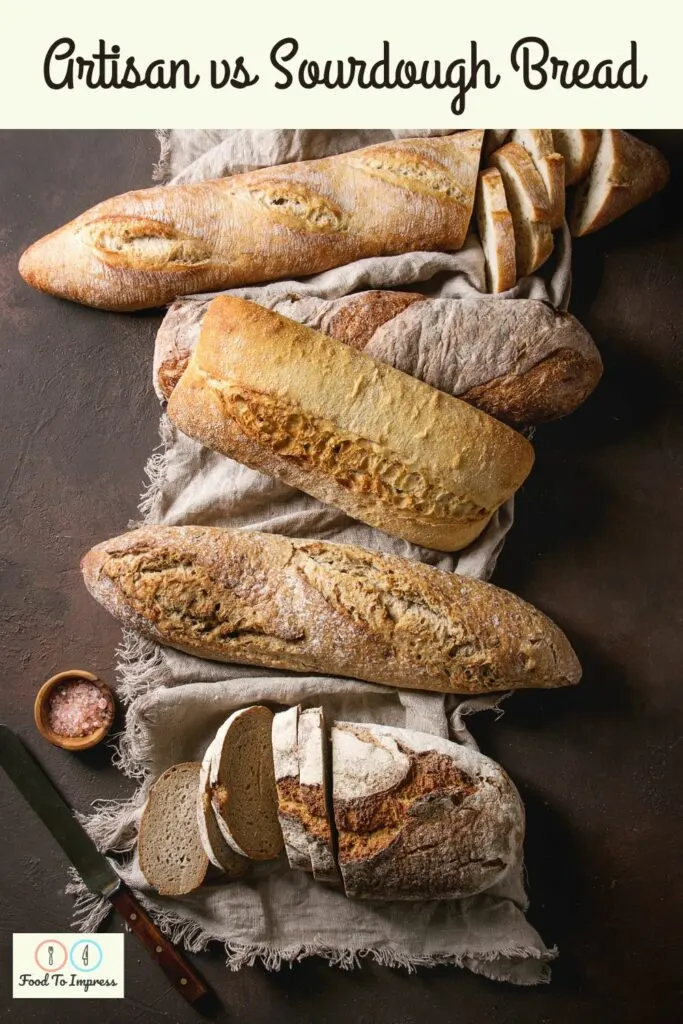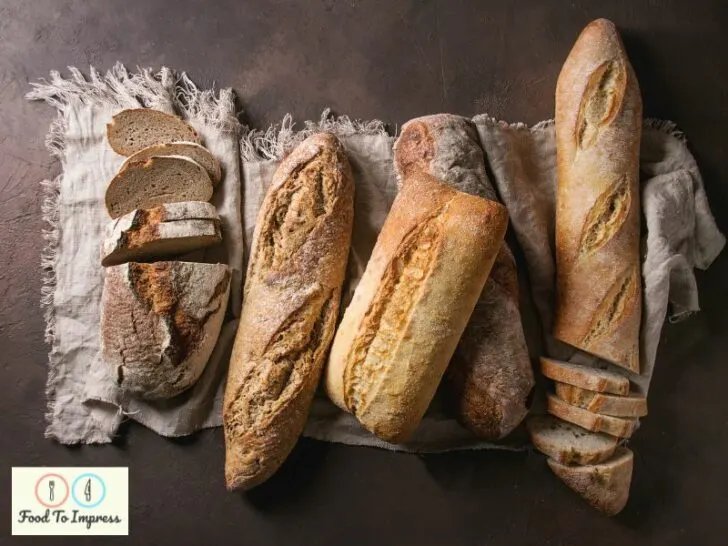When you walk into a bakery, you’re often greeted by an intoxicating aroma that weaves its way through the display cases filled with a variety of bread loaves. Among these, two types often vie for your attention – artisan bread and sourdough bread. The question of artisan bread vs sourdough bread is not an uncommon one, and today, we dive into the distinct attributes of each.
Artisan bread and sourdough bread differ primarily in their ingredients and methods of production. Let’s pull back the veil on these two bread types to gain a clearer understanding.
QUICK ANSWER: Artisan bread refers to a type of bread that is crafted in small batches using traditional methods and high-quality ingredients, often allowed to rise at room temperature, while sourdough bread is defined by its distinctive tangy flavor, achieved through a specific fermentation process using a ‘starter’ that contains wild yeast and lactic acid bacteria. In terms of differences, the main one lies in their fermentation process – artisan bread’s fermentation can vary widely and may use commercial yeast, while sourdough bread uses a longer, natural fermentation process led by the sourdough starter.
What is Artisan Bread?
Artisan bread is defined by the traditional methods employed in its making, often baked in small batches to maintain quality control. The dough is usually left to rise at room temperature, and its fermentation process is typically longer than that of regular bread, allowing the development of a deep, rich flavor. While the type of flour can vary from white flour to whole wheat flour or even a mix of different types of flour, artisan bread flour is typically high in protein content for the best results.
Artisan bread may be characterized by a firm crust, indicative of the oven spring achieved through high heat, and a soft, moist crumb inside. When baked to a golden brown, the artisan loaf, whether it is French baguettes, ciabatta bread, or rye bread, often has a superior taste and texture compared to mass-produced bread.

Artisan Sourdough vs Regular Sourdough
So, what distinguishes artisan sourdough from regular sourdough? The primary distinction lies in the fermentation process and the wild yeast used. In artisan sourdough bread, bakers often use an active starter that harnesses wild yeast, giving the bread a unique sour taste, and lactic acid bacteria that contribute to the bread’s overall health benefits.
In contrast, regular sourdough bread recipes may use commercial yeast, which results in a less pronounced sour flavor. Additionally, the dough’s bulk fermentation typically occurs at ambient temperature, enhancing the flavor complexity.
Is Artisan Bread Healthier than Sourdough Bread?
In comparing the health aspects of artisan bread vs sourdough bread, there’s a significant difference to note. Both types of bread have their benefits, but sourdough bread is a healthier option due to its lower glycemic index, which can help control blood sugar.
Sourdough fermentation, guided by wild yeast and lactic acid bacteria, also reduces phytic acid in the dough. This enhances the bioavailability of nutrients, making them easier for your body to absorb.
It’s noteworthy that artisan bread made from whole grain flour can provide more fiber and nutrients than white flour. However, the nutritional profile can vary based on the exact combination of ingredients used.
Conclusion Artisan Bread vs Sourdough Bread
Whether you prefer a loaf of artisan bread or a fresh sourdough bread, baking at home allows you to control the quality of ingredients used, from the choice of flour types to the use of natural ingredients like olive oil and sesame seeds. This way, you can avoid unwanted additives like added sugar or dough conditioners that are often found in grocery store bread.
Moreover, baking bread at home gives you the freedom to experiment with different flours, techniques, and recipes, whether it’s the traditional French baguettes or an experimental artisanal bread infused with your choice of flavors. So, go ahead, and good luck exploring the bread baking world. After all, there’s nothing like the taste of homemade bread, fresh from your own oven.

